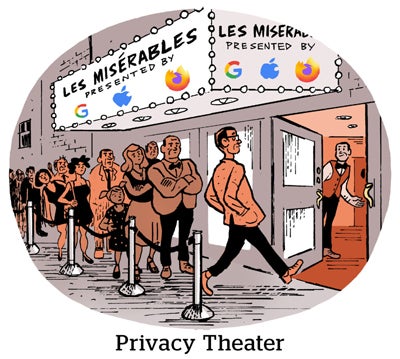Here’s today’s AdExchanger.com news round-up… Want it by email? Sign up here.
Can A Tiger Change Its Stripes?
Google offered to split its ad tech business into a stand-alone company (owned by Alphabet) as a concession to divert an antitrust suit, The Wall Street Journal reports. It’s unclear which products Google would transfer – although its ad networks, AdMob and Google Ads, are the likeliest suspects.
The leak apparently comes from the Justice Department, which is surprising because those guys like to keep their lips sealed. An unnamed source in the department says a Google ad tech antitrust case could come as soon as later this summer.
Google’s offer comes a few weeks after a report that Google floated the reinstatement of third-party ad serving on YouTube as part of a compromise with EU antitrust enforcers.
There’s no official word on either offer, but it’s significant that Google appears to be weighing serious changes to its business structure to divert anticompetition cases.
On the other hand, is creating an Alphabet-owned AdMob/DoubleClick unit really such a major concession? Potentially. And it could also be a new page in the Alphabet playbook. Wayne Matus, co-founder and general counsel of SafeGuard Privacy, speculated earlier this year that Google might create a separate Google Analytics business under the Alphabet umbrella, but based in Europe and with no server connections to the US – which is the reason why GA is currently illegal in the EU.
The EU Says Pee-Yew To Big Tech
Google has borne the brunt of the Schrems II fallout. Google Analytics is illegal in Europe, after all, and regulators have called for site operators to turn off GA in Germany, France and Italy, among other countries.
But Google’s rivals aren’t cheering – because they’re next.
Meta faced a crackdown by the Irish data authority, which sent a draft decision to the EU commission that, if enforced as it stands, could prohibit Facebook, Instagram and other Meta-owned apps in Europe, Adweek reports. Although that’s theoretical right now and would require a drawn-out legal proceeding, it’s still a big deal.
The Snowden leak revealed illegal (according to European law) American surveillance of EU citizens, and former President Trump previously signed a law empowering law enforcement to subpoena data from European servers – so there’s no safety in arguing the data never leaves EU borders.
By this GDPR interpretation, Microsoft, Amazon or practically any American cloud data and service provider is illegal. (Thus the reasoning behind speculation that Google could split out Google Analytics into a stand-alone European company.)
The GDPR may be a privacy and data protection law, but it’s going to be put to use as an antitrust cudgel, too, since prohibiting major US tech companies could energize homegrown European tech.
Poetic License
Studiocanal, a French film production and distribution company, is pulling content from the PlayStation Store next month, including already purchased movies, Variety reports.
It’s hardly the end of the world and only applies in Germany and Austria, but it’s another example of an underappreciated aspect of streaming media: We no longer own the books, movies and music we buy (edit: rent) online.
Multiple lawsuits were filed against Apple last year by customers surprised to learn that movies and music purchased on iTunes doesn’t belong to them. When you purchase a DVD, CD or book in real life, you own it. You can share it, give it away or fling it into the ocean. But when you buy music, media or other content online, you acquire a license to access it rather than the thing itself.
There’s little risk of Apple, Google or Amazon going bankrupt. But there are other risks – like studios or rival tech companies that own the means of production pulling their content into a fortress.
“Apple contends that ‘[n]o reasonable consumer would believe’ that purchased content would remain on the iTunes platform indefinitely,” wrote District Court Judge John Mendez last year in a class-action suit against Apple. “But in common usage, the term ‘buy’ means to acquire possession over something.”
But Wait, There’s More!
How China’s relationship to Hollywood has shaped the movies. [Vox]
Unpacking Meta’s pivot to an open graph and short-form video. [Mobile Dev Memo]
Glance, a Google-backed mobile ad company and subsidiary of InMobi, has deals to serve ads to Android lockscreens. [Gizmodo] Redditors are not happy. [subreddit]
Google and Chrome developer Paul Kinlan: The off-by-default web. [blog]
Excluding digital content, M&A activity was down 21% quarter over quarter and down 24% YoY, according to LUMA Q2 2022 market report. [deck]
















